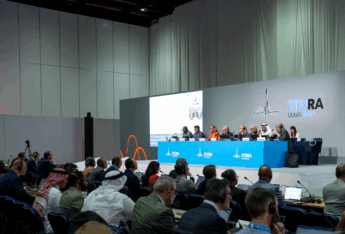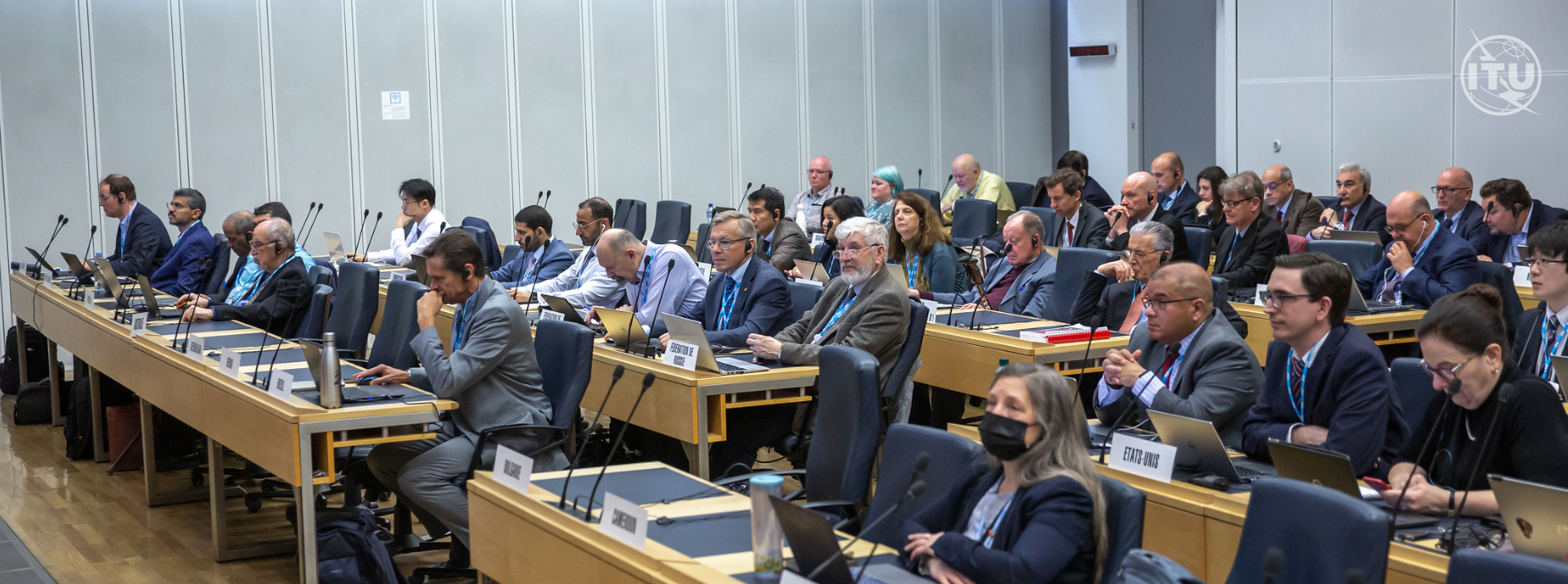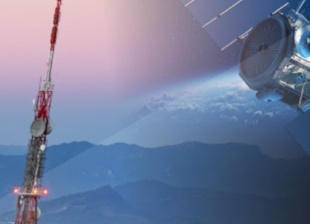Your Gateway to Shaping the Future of Global Radio Spectrum Management
Have you ever wondered about the work of ITU‑R and how you can get involved?
Have you ever wondered about the work of ITU‑R and how you can get involved?

World Radiocommunication Conferences (WRC)

Radiocommunication Assemblies (RA)

Radiocommunication Advisory Group (RAG)

Radio Regulations Board (RRB)

World Radiocommunication Seminars (WRS)

Regional Radiocommunication Seminars (RRS)

ITU-R Study Groups (SGD)

Space Services Department (SSD)

Terrestrial Services Department (TSD)

ITU-R Databases and
e-Services

ITU-R Publications

BR IFIC Hub
World Radiocommunication Conferences (WRC) are held every three to four years to review, and, if necessary, revise the Radio Regulations, the international treaty governing the use of the radio-frequency spectrum and the geostationary-satellite and non-geostationary-satellite orbits. Revisions are made on the basis of an agenda determined by the ITU Council, which takes into account recommendations made by previous world radiocommunication conferences. The general scope of the agenda of world radiocommunication conferences is established four to six years in advance, with the final agenda set by the ITU Council two years before the conference, with the concurrence of a majority of Member States. Under the terms of the ITU Constitution, a WRC can:
On the basis of contributions from administrations, the Radiocommunication Study Groups, and other sources (see Article 19 of the Convention (Geneva, 1992)) concerning the regulatory, technical, operational and procedural matters to be considered by World and Regional Radiocommunication Conferences, the Conference Preparatory Meeting (CPM) shall prepare a consolidated report to be used in support of the work of such conferences.
Radiocommunication Assemblies (RA) are responsible for the structure, programme and approval of radiocommunication studies.
They are normally convened every three or four years and may be associated in time and place with World Radiocommunication Conferences (WRCs).
The Assemblies:
According to the ITU Constitution (CS 84A) and Convention (CV 160A-160H), the Radiocommunication Advisory Group (RAG) is tasked to:
The RAG provides advice on these matters to the Director of the Radiocommunication Bureau. Radiocommunication Assemblies may refer specific matters within its competence to RAG (CV 137A). The matters assigned to RAG by RA-03 are specified in Resolution ITU-R 52-1.
The RAG Chair was elected by the Radiocommunication Assembly.
The twelve members of the Radio Regulations Board (RRB) are elected at the Plenipotentiary Conference. They perform their duties independently and on a part-time basis, normally meeting up to four times a year, in Geneva.
The Board :
The Director of the Bureau is the Executive Secretary of the Radio Regulations Board.
More on Radio Regulations Board (RRB)
The ITU organizes World Radiocommunication Seminars (WRS) on a biennial basis, in complement to the cycle of Regional Radiocommunication Seminars (RRS). WRS deal with the use of the radio-frequency spectrum and the satellite orbits, and, in particular, with the application of the provisions of the ITU Radio Regulations.
The main objectives of BR seminars and workshops are: to give assistance to Member States in spectrum management activities, e.g. through training, information meetings, seminars, development of handbooks and the provision of tools for automated spectrum management; to expand the assistance offered to Member States in coordinating and registering frequency assignments and in applying the Radio Regulations, with special attention to developing countries and Member States that have recently joined the Union.
One of the objectives of the BR is to hold regional seminars in a way to equitably cover all ITU Regions. Administrations that are interested in hosting a regional seminar may contact the BR and, subject to availability of time and resources, the BR undertakes all the necessary steps to organize the event. The BR also organizes, upon request, individual training in Geneva. This training is usually held in conjunction with important ITU-R meetings and the BR tries to regroup them over a one-week period.
ITU-R Study Groups develop the technical bases for decisions taken at World Radiocommunication Conferences and develop global standards (Recommendations), Reports and Handbooks on radiocommunication matters. More than 5,000 specialists, from governments, regulators, the telecommunications industry and academic and research organizations, participate in the work of the Study Groups on topics such as efficient management and use of the spectrum/orbit resource, radio systems characteristics and performance, spectrum monitoring and emergency radiocommunications for public protection and disaster relief.
The Space Services Department (SSD) is responsible for coordination and recording procedures for space systems and earth stations. The Department handles capture, processing and publication of data and carries out examination of frequency assignment notices submitted by administrations for inclusion in the formal coordination procedures or recording in the Master International Frequency Register (MIFR).
The Department is also responsible for managing the procedures for space related assignment or allotment plans of the ITU and for provision of assistance to administrations on all of the above issues.
Structure of SSD
Space Notification and Plans Division (SNP)
Space Publication and Registration Division (SPR)
Space Systems Coordination Division (SSC)
The Terrestrial Services Department (TSD) carries out technical and regulatory functions and provides assistance to administrations in the domain of international management of the RF spectrum, as specified in the Radio Regulations and various Regional Agreements, concerning terrestrial services (broadcasting, fixed, maritime mobile, aeronautical mobile, etc.).
It processes notifications of frequency assignments, maintains the Master Register and Plans concerning terrestrial services and publishes their updates at regular intervals.
It applies various administrative regulations dealing with allocation of international means of identifications (call sign series, MIDs) and with safety of life. To this end, it processes submissions for various service documents (List of coast stations, List of ship stations, etc.), publishes their updates and maintains their on-line versions.
The BR International Frequency Information Circular (BR IFIC) provides essential information on frequency assignments and allotments submitted by administrations for recording in the Master International Frequency Register and Plans. The BR IFIC is published once every two weeks by the Bureau, pursuant to Article 20 of the Radio Regulations.
For further assistance or to submit a specific request for the delivery of DVD-ROMs, please contact the ITU Sales division at:
For further information on the New Distribution and User Policy for the “BR IFIC Online” please see Circular Letter CR/508:
The Bureau is available for any clarification via the brmail@itu.int address with respect to the subjects covered in the above Circular Letter.

BRIFIC
Space Services

BRIFIC
Terrestrial Services